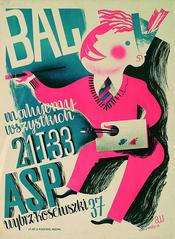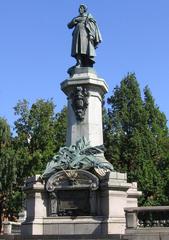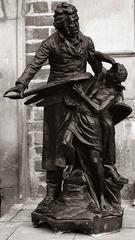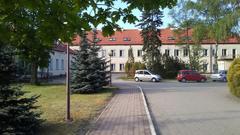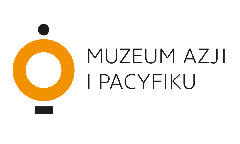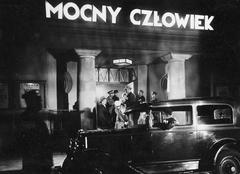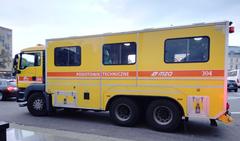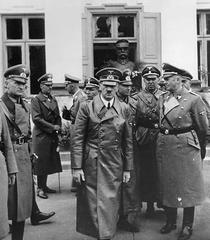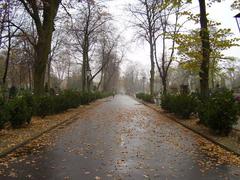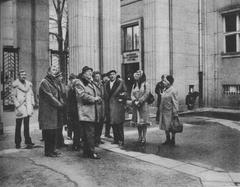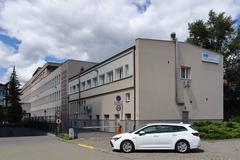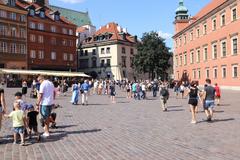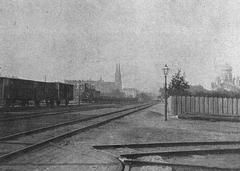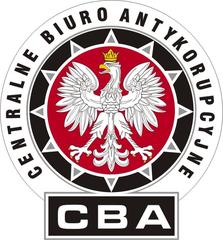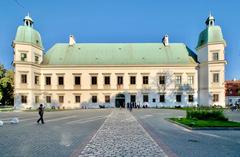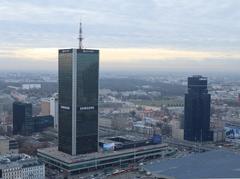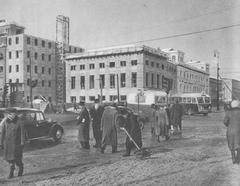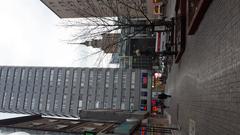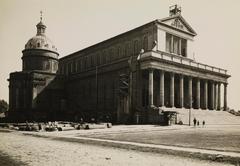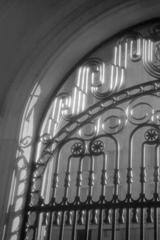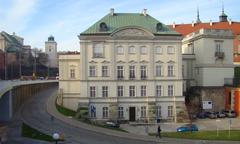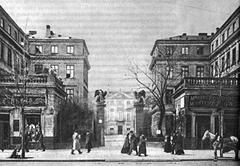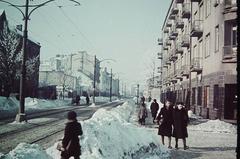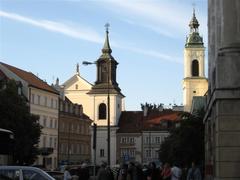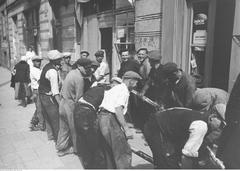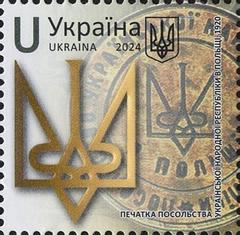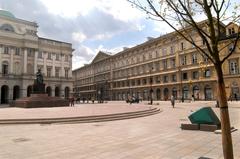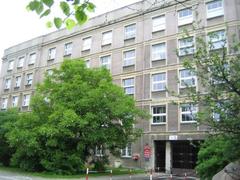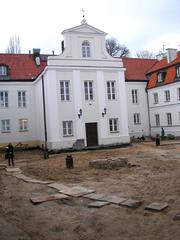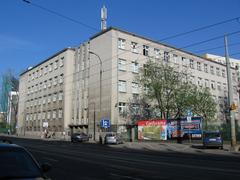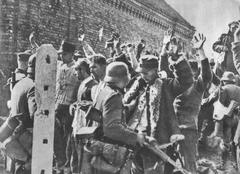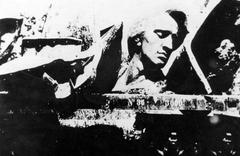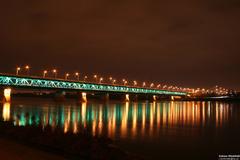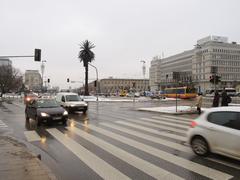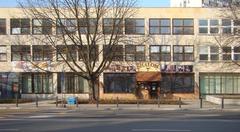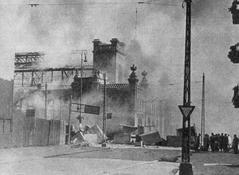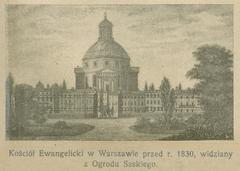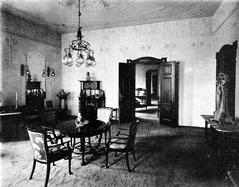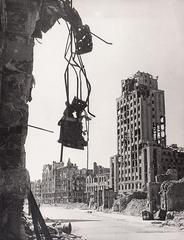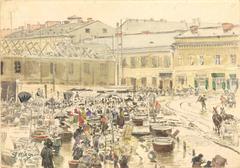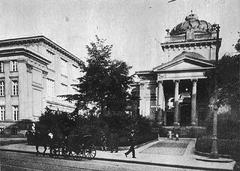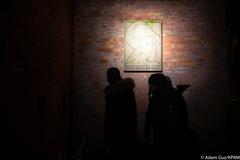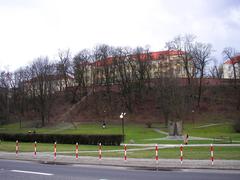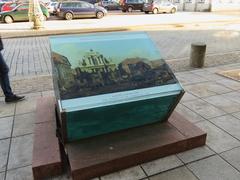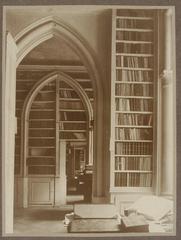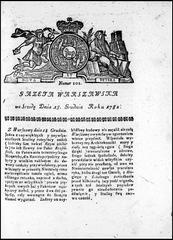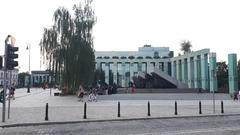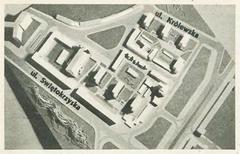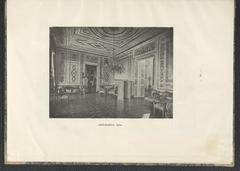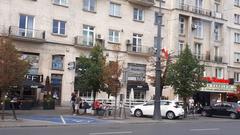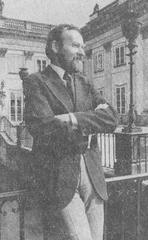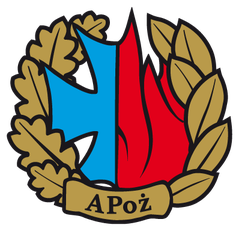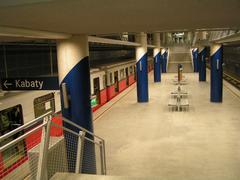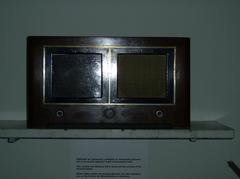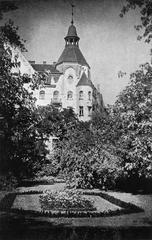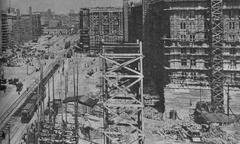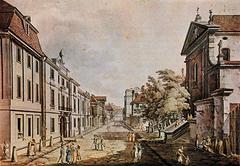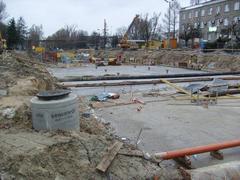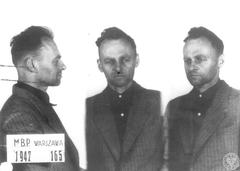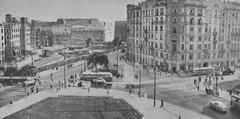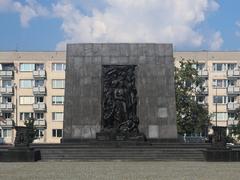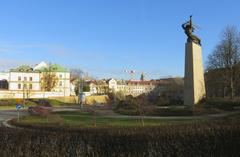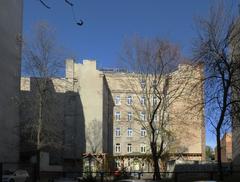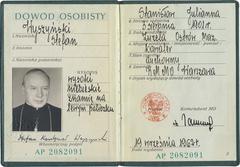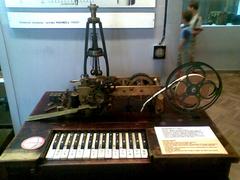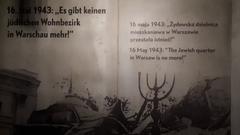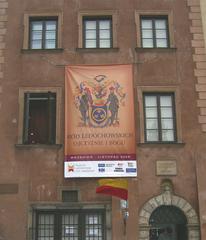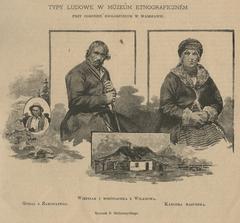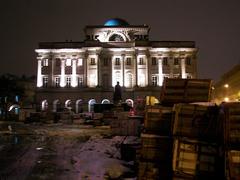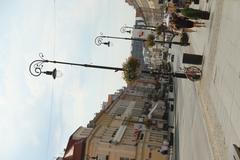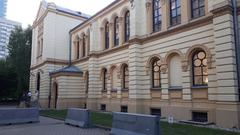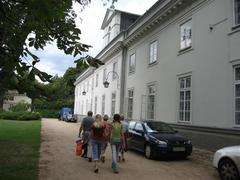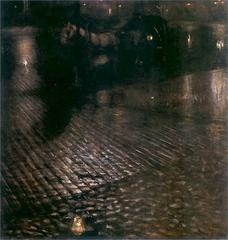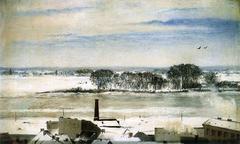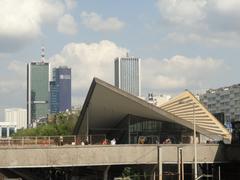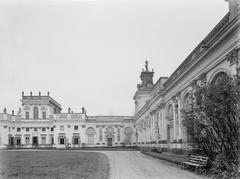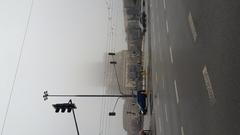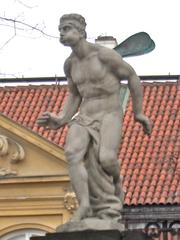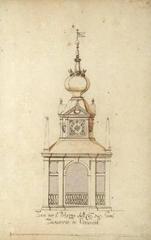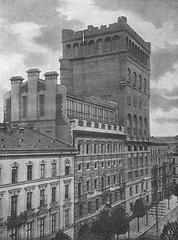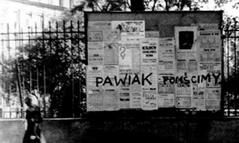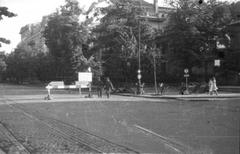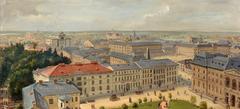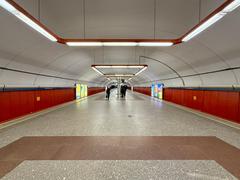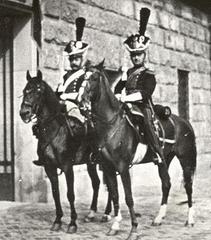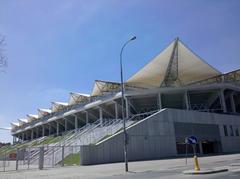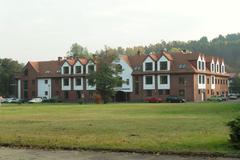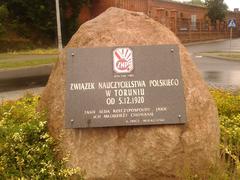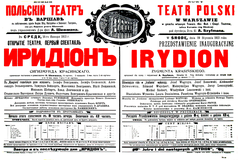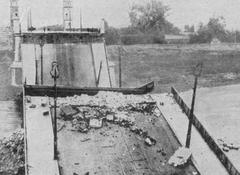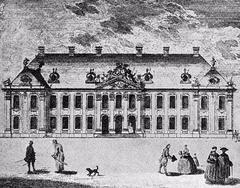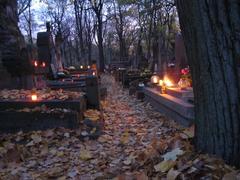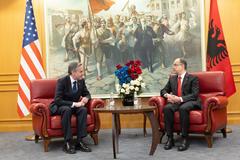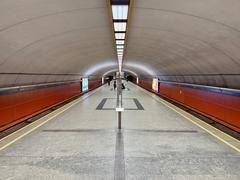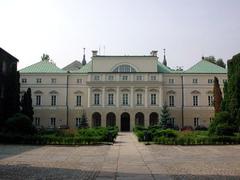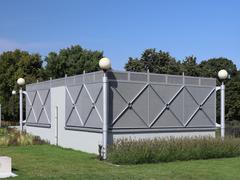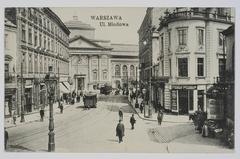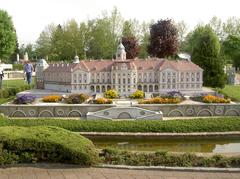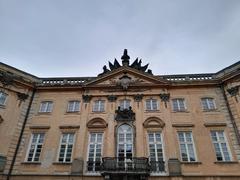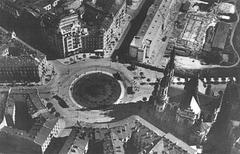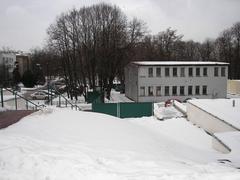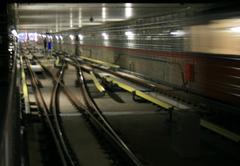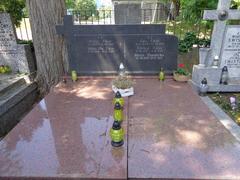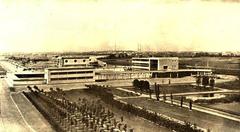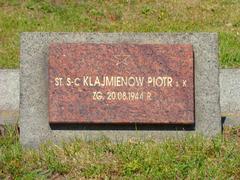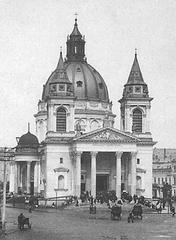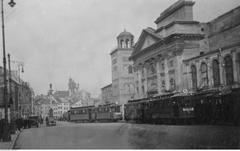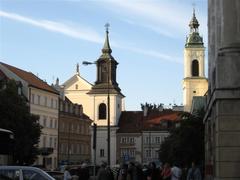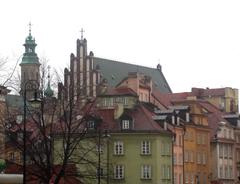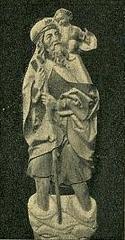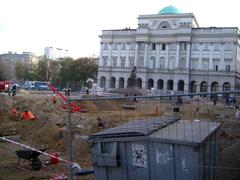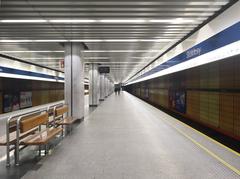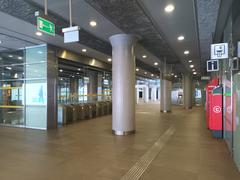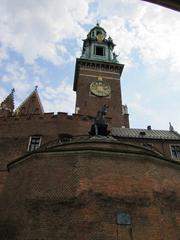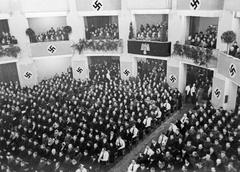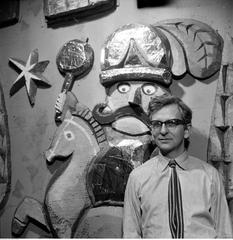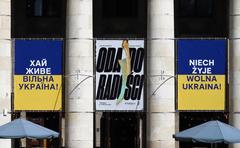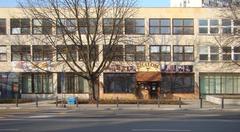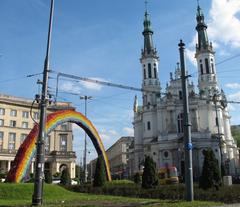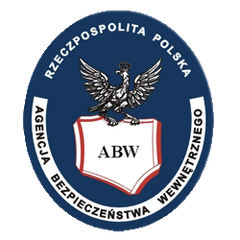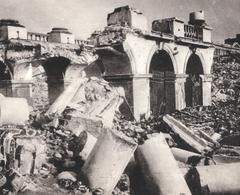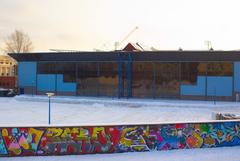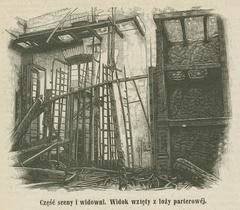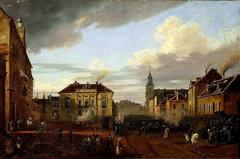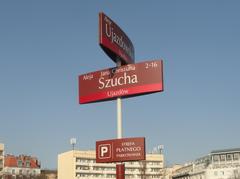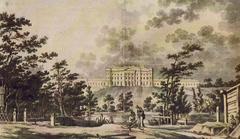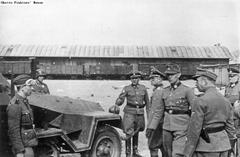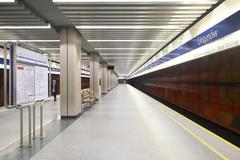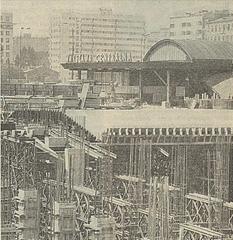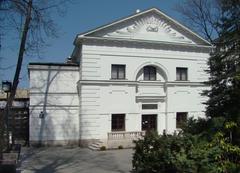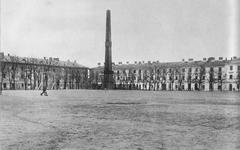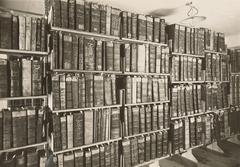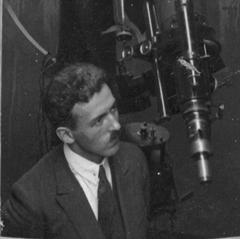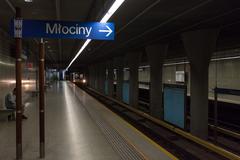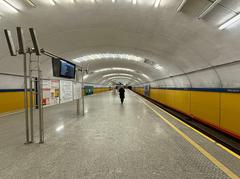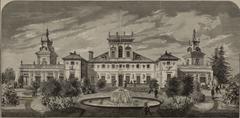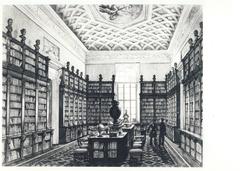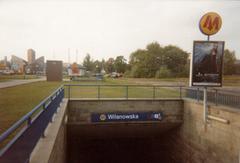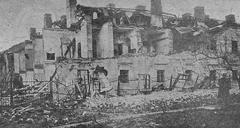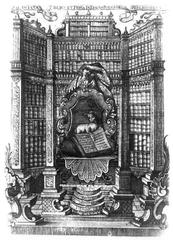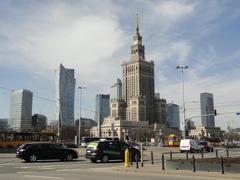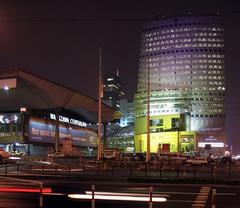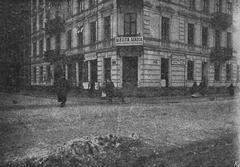Jan Nowak-Jeziorański Monument: Visiting Hours, Tickets, and Warsaw Historical Sites Guide
Date: 03/07/2025
Introduction
The Jan Nowak-Jeziorański Monument in Warsaw stands as a moving tribute to one of Poland’s most celebrated 20th-century heroes. Known as the “Courier from Warsaw,” Jan Nowak-Jeziorański was instrumental in the fight for Polish sovereignty—first as a clandestine courier during World War II, and later as a prominent broadcaster and advocate for freedom during the Cold War. Located in the tranquil Marshal Edward Rydz-Śmigły Park, the monument invites visitors to reflect on the themes of courage, resilience, and the persistent struggle for independence that define modern Polish history.
This guide provides essential details for planning your visit, including opening hours, ticket information, accessibility, directions, and recommendations for nearby historical sites. Whether you are a history enthusiast, a cultural traveler, or simply curious about Poland’s past, this article will help you make the most of your experience at this significant Warsaw landmark.
Monument Significance and Historical Context
Jan Nowak-Jeziorański (1914–2005), born Zdzisław Antoni Jeziorański, was a renowned Polish resistance fighter and later a leading voice for Polish democracy. As the famed “Courier from Warsaw,” he risked his life to deliver critical information between Nazi-occupied Poland and the government-in-exile in London during World War II. His wartime missions played a pivotal role in sustaining the Polish resistance and shaping Allied understanding of the situation in occupied Europe.
After the war, Nowak-Jeziorański continued to serve his country as director of the Polish section of Radio Free Europe. Broadcasting uncensored news into communist Poland, he became a beacon of hope for millions living under the Iron Curtain. His tireless advocacy for freedom earned him national and international honors, including the Knight’s Cross of the Virtuti Militari and the U.S. Presidential Medal of Freedom (Coffee or Die).
The monument, crafted by Wojciech Gryniewicz and unveiled in 2006, commemorates both his individual heroism and the larger struggle for Polish liberty. It is not only a site of remembrance but also an educational resource for new generations.
Monument Design and Symbolism
Artistic Concept
The monument features a life-sized bronze statue of Jan Nowak-Jeziorański seated on a bench, inviting visitors to sit beside him. This interactive design, rather than a traditional pedestal, emphasizes Nowak-Jeziorański’s accessibility and humility, mirroring his lifelong role as a communicator and public servant (Mapcarta). The use of bronze as the primary material signifies the enduring nature of his legacy.
Symbolic Elements
- Attire and Accessories: Nowak-Jeziorański is depicted in motion or in thoughtful repose, often with a briefcase or satchel—an allusion to his clandestine missions as a courier.
- Inscriptions: The bench or pedestal typically bears his name, dates (1914–2005), and a summary of his achievements, sometimes accompanied by quotations from his speeches or writings.
- Setting: The monument is placed in a landscaped area within Marshal Edward Rydz-Śmigły Park, surrounded by trees and benches, fostering a serene atmosphere for contemplation (Tropter).
Location and How to Get There
- Address: Marshal Edward Rydz-Śmigły Park (Park Marszałka Edwarda Rydza-Śmigłego), Warsaw, Poland.
- Public Transport: The park is centrally located and easily accessible via Warsaw’s tram and bus network. The closest stops are serviced by several tram and bus lines; look for “Czerniakowska” or nearby stops.
- By Car: Limited street parking is available near the park, but using public transportation is recommended for convenience.
- Accessibility: The monument and surrounding park paths are wheelchair accessible and suitable for visitors with mobility challenges.
Visiting Hours and Ticket Information
- Monument and Park: Open 24 hours a day, 7 days a week, year-round.
- Admission: Free of charge. No tickets are required to visit the monument or the park.
- Information Centre: The nearby Jan Nowak-Jeziorański Information Centre (when open) typically operates Monday to Friday, 10:00 AM to 6:00 PM. Special exhibitions or events may have specific hours or nominal fees.
Practical Visitor Tips
- Best Times to Visit: The park and monument are beautiful year-round, but spring and summer offer the most pleasant weather. Early mornings and late afternoons are ideal for photography and tranquility.
- Photography: Visitors are encouraged to take photos. The interactive bench design provides unique opportunities for memorable pictures.
- Guided Tours: While no guided tours are provided at the monument itself, many Warsaw walking tours include the site, offering additional historical context. Check with local tour agencies or museums for available options.
- Events: Special commemorative ceremonies are held annually, especially around the anniversary of the Warsaw Uprising on August 1st.
Nearby Attractions and Additional Points of Interest
Enhance your visit by exploring other significant sites nearby:
- Warsaw Uprising Museum: Extensive exhibitions on the 1944 uprising and the broader context of World War II in Poland (Warsaw Rising Museum).
- POLIN Museum of the History of Polish Jews: A comprehensive museum chronicling Jewish history in Poland.
- National Museum and Polish Army Museum: Both within walking distance, offering collections of art and military history.
- Vistula River Promenade: Ideal for a scenic walk or bike ride.
- Other Park Memorials: Marshal Rydz-Śmigły Park features several other memorials, art installations, and dedicated cycling trails (Tropter).
Accessibility and Visitor Amenities
- Wheelchair Access: The monument and surrounding park paths are fully accessible.
- Amenities: Public restrooms, benches, shaded areas, cafes, and kiosks are available in and around the park.
- Safety: The area is considered safe and family-friendly, patrolled regularly, and equipped with clear signage.
Frequently Asked Questions (FAQ)
Q: What are the Jan Nowak-Jeziorański Monument visiting hours?
A: The monument is accessible 24/7, year-round, within Marshal Rydz-Śmigły Park.
Q: Is there an entrance fee or ticket required?
A: No, visiting the monument and park is free of charge.
Q: How do I get there by public transport?
A: Use Warsaw’s tram and bus network to reach “Czerniakowska” or other stops near the park. Signage directs visitors to the monument.
Q: Is the monument wheelchair accessible?
A: Yes, paved paths ensure accessibility for all visitors.
Q: Are guided tours available?
A: The monument is often included in Warsaw historical walking tours. Check with local providers or museums for details.
Q: Can I take photographs?
A: Yes, photography is welcome. Please respect the monument and other visitors.
Cultural and Educational Impact
The Jan Nowak-Jeziorański Monument is more than a memorial; it is an educational resource and a focal point for civic remembrance. Informational plaques and the nearby Information Centre provide historical context. School groups, historians, and international tourists frequently visit to learn about Nowak-Jeziorański’s life and the broader story of Poland’s resistance and resilience.
The monument’s design and location foster reflection on the importance of democracy, freedom of speech, and international solidarity—values that remain central to Poland’s identity today (Warsaw Rising Museum).
Plan Your Visit and Explore More
Make the most of your exploration by combining a visit to the Jan Nowak-Jeziorański Monument with other historical sites and cultural attractions in Warsaw. The park’s central location makes it easy to create a full day’s itinerary that includes museums, memorials, and scenic walks along the Vistula River.
For the latest updates, digital maps, and audio guides, consider using travel apps or consulting official Warsaw tourism websites.
Official References and Further Reading
- Warsaw Uprising Museum
- Jan Nowak-Jeziorański Information Centre
- Monuments and memorials in Warsaw (Wikipedia)
- Jan Nowak-Jeziorański’s story and legacy (Coffee or Die)
- Marshal Rydz-Śmigły Park information
- Home Army Museum
- Polskie Radio article on Jan Nowak-Jeziorański
- Find a Grave: Jan Nowak-Jeziorański
Summary
The Jan Nowak-Jeziorański Monument is a must-visit destination for anyone wishing to connect with Poland’s heroic past and values of freedom and resilience. Open around the clock, free to all, and thoughtfully designed to foster personal reflection, it stands as both a poignant memorial and an accessible educational site. Combine your visit with Warsaw’s nearby museums and parks for a truly enriching experience. Share your journey on social media with #NowakJezioranskiMonument and help keep the story of Poland’s quest for freedom alive.
